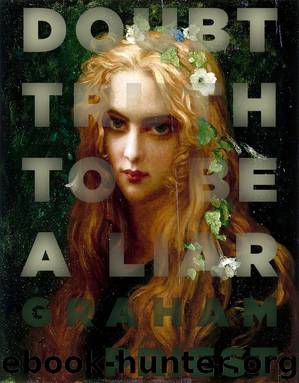Doubt Truth to be a Liar by Graham Priest

Author:Graham Priest [Priest, Graham]
Language: eng
Format: epub
Published: 2008-09-08T20:10:00+00:00
6.5 TRUTH AND REJECTION
Having explored the connection (or lack thereof) between rejection and negation, let us now explore the connection between rejection and truth-or untruth.
It is natural enough to claim that one ought to believe what is true. Put in this way, though, the claim is false. There is no onus to believe something simply because it is true. There is, however, if there is good evidence that it is true. Thus:
Accept. One ought to accept something if there is good evidence for its truth.
The 'ought' here, note, has nothing to do with what morality or prudence require: it might well be the case that one ought not to believe things that are evidentially grounded, in those senses. (Having true beliefs can well get you into trouble!) The `ought' here is one of rationality. It is rational to believe what is evidentially grounded (and irrational to believe what is not). This raises the question of what evidential grounding is, but we do not need to pursue that matter here; we will return to it in the next part of the book.
What we will pursue now is the possibility of a claim about rejection dual to Accept. Anyone who believes that there are truth-value gluts or gaps must distinguish between falsity (that is, truth of negation) and untruth-that is, between T(-'a) and -'T(a). If there are truth-value gaps, something can be untrue without being false. And if there are truth-value gluts, then, at least prima facie, something can be false without 12 being untrue.
A natural dual to Accept is:
Reject(F). One ought to reject something if there is good evidence for its falsity.
There is nothing in the existence of truth-value gaps that threatens this principle, but it is unlikely to recommend itself to a dialetheist. Consider something taken to be both true and false, such as 'this sentence is false'. Call this X. Half of the paradox argument for this provides good evidence for -'A, but one would not, on this count, want to reject k. For the other half of the paradox argument provides evidence for n.. Accept itself, therefore, counsels its acceptance."
The lack of symmetry between Accept and Reject(F) might be felt to be uncomfortable. Why the one, but not the other? But one should recall that falsity is nothing other than truth of negation. So the correct principle concerning falsity is that delivered by Accept:
One ought to accept -'a if there is good evidence for the falsity of a.
The dual of Accept looks more plausible if we formulate it in terms of untruth, not falsity. After all, if it is the truth that one is after, it is the untruth that one wishes to avoid. Thus we have:
Reject(U). One ought to reject something if there is good evidence for its untruth.
Even this dual may be resisted, however. Take the liar paradox in the form `this sentence is not true'. The standard argument establishes that it is both true and untrue. Should one reject it on this count? Not obviously.
Download
This site does not store any files on its server. We only index and link to content provided by other sites. Please contact the content providers to delete copyright contents if any and email us, we'll remove relevant links or contents immediately.
| Anthropology | Archaeology |
| Philosophy | Politics & Government |
| Social Sciences | Sociology |
| Women's Studies |
The Code Book by Simon Singh(3167)
Medea and Other Plays by Euripides(1429)
The Only Grammar Book You'll Ever Need: A One-Stop Source for Every Writing Assignment by Thurman Susan(1314)
Social Linguistics and Literacies by Gee James;(1143)
The Bostonians, Vol. II (Of II) by Henry James(1101)
The Dictionary of the Vulgar Tongue by Francis Grose(1085)
The Satyricon by Petronius(972)
The Fasti (Verse) by Ovid(949)
Essential Words for the TOEFL by Steven J. Matthiesen(933)
Idylls of the King by Baron Alfred Tennyson Tennyson(924)
Words Fail Me by Patricia T. O'Conner(907)
The Playboy of the Western World by J. M. Synge(907)
The Language Instinct: How The Mind Creates Language by Pinker Steven(862)
The Great Book of American Idioms: A Dictionary of American Idioms, Sayings, Expressions & Phrases by Lingo Mastery(830)
The Language Instinct: How the Mind Creates Language by Steven Pinker(829)
The Language Instinct by Steven Pinker(826)
The Riddle of the Labyrinth(808)
Don't Believe a Word: The Surprising Truth About Language by David Shariatmadari(773)
The Etymologicon by Mark Forsyth(760)
